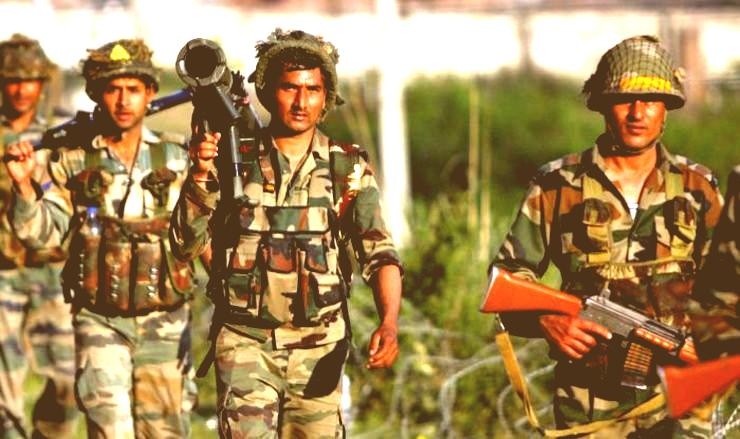In the last 48-hours, Pakistan has been unprecedented in its ceasefire violations, initiating crossfire across the LoC. In one of the incidents, an Army Major along with four soldiers was martyred in the Rajouri sector, one of them being a 22-year old officer, 6-days away from his birthday.
Ceasefire violations are no longer a surprise, given on the other end of the wire is a nation that thrives on violence, fuels its propaganda via death on both sides of the border, and cares little for humanity. India, since 2014, has been on the front foot, tackling instances of cross-border firing with wrath greater than what we had grown accustomed to under the last government. However, even after the diplomatic isolation in the form of SAARC, US’ fund allocation, alongside multiple channels via the UN, Pakistan’s resolve for violence and ceasefire violation continues to draw Indian blood, and therefore, it’s time the Government of India ups the ante. Pakistan needs a sterner lesson, and possibly, a final one. India must take on the following four courses:
Retaliation: Firstly, the retaliation must go on. Pakistani army and terrorists disguised as the Pakistani army must be dealt with strongly. For everyone bullet received, ten as many must be given back. In the past, our retaliatory strikes have achieved significant success as evident by the destruction of Pakistani force, bunkers, assets across the LoC. In 2017 alone, over 300-men of the enemy force were eliminated.
Surgical Strikes: Two, to supplement and complement the retaliatory strikes, India must sanction ‘Surgical Strikes’, similar to the ones carried out last year. Needless to say, the planning, execution, and implementation must be given to the sharpest minds in the system, but care must be taken to achieve maximum surprise, damage, with minimum risk and resources. Surgical Strikes should not be about eliminating terrorists alone, but about making a statement that India can respond brutally to each and every attack on its soil. In the next 6-months, similar strikes could break the spine of terrorist operations across the LoC, and to some extent, within the valley.
Indus Water Treaty: However, we must beyond the sword towards psychological warfare. India must pressurize the Pakistani establishment by politicising the Indus Water Treaty. In an age where there are better chances of finding life on Mars than establishing a progressive India-Pakistan peace dialogue, the government has little reason to invest in a treaty inherited from a socialist mindset, plagued with utopian ideals of nation-building. The treaty must go, and India must soon figure out a way to utilise the excess water. Destabilizing the IWT could lead to a negative impact in the North-East, given how China could go back on its words on the Brahmaputra issue. However, China has already violated several terms pertaining to that agreement. Posing a danger to the otherwise stagnant agricultural economy of Pakistan could have a significant impact on the operations across the LoC.
Short Term War: India should be looking to go out all guns blazing against Pakistan. At this junction, the Modi Government must look ahead of its critics, their ideas and principles, and do what is in the interest of the country, for no officer or jawan in our defense forces deserves to die like this.
